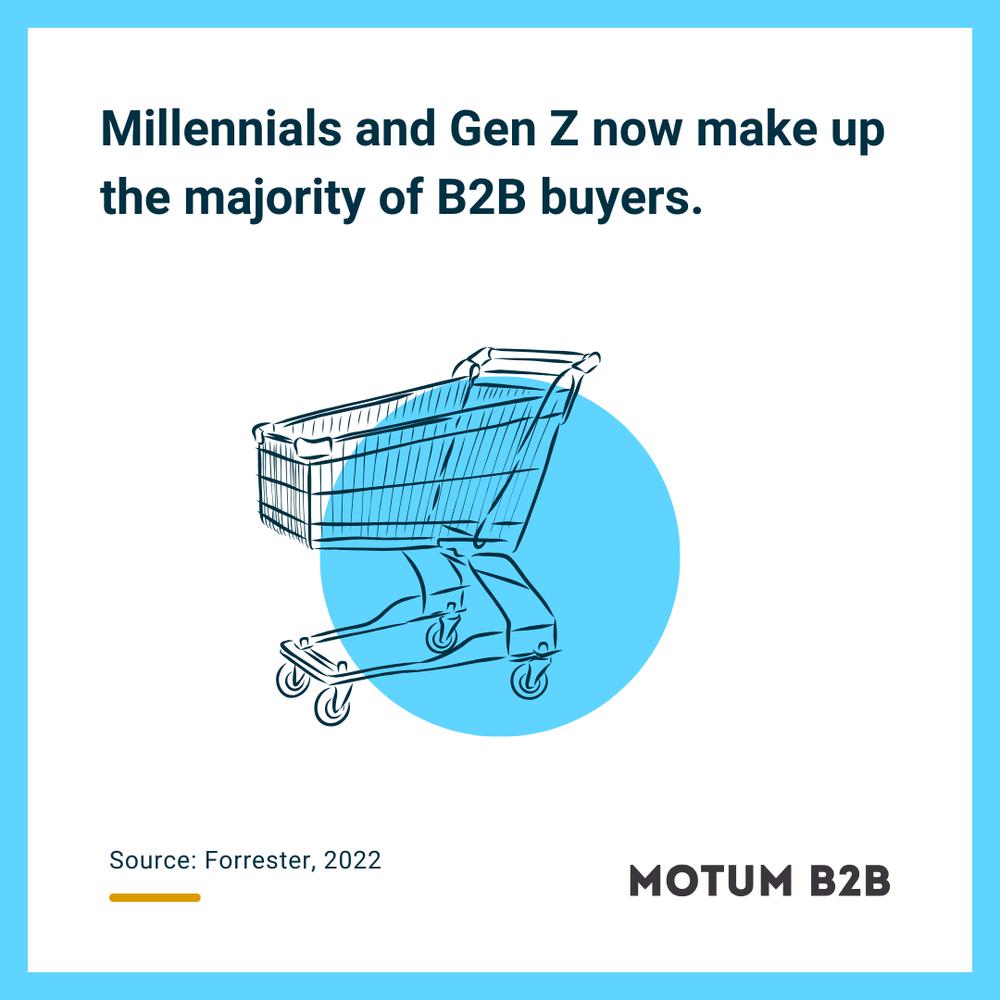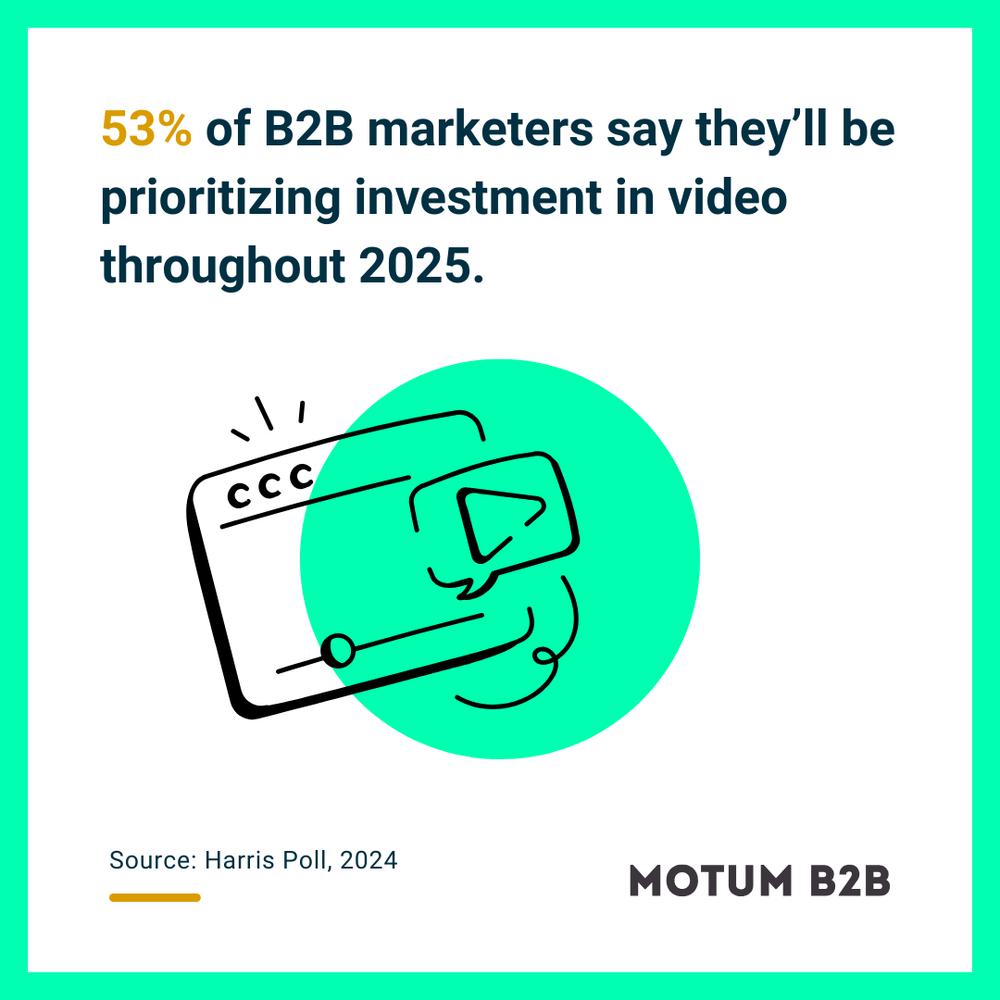5 B2B marketing trends to prepare for in 2025
As we enter 2025, we look at what changes B2B marketers can expect to see over the next 12 months, and how you can get ready for them.

Welcome to 2025! A new year of opportunity and a new year for marketing trends. From appealing to a younger generation of B2B buyers to taking a more nuanced approach to video, this is what we think is going to disrupt and shape the year ahead.
1. Targeting a younger generation of B2B buyers
Millennials and Gen Z now make up the majority of B2B buyers, rising from 64% in 2022 to 71% a year later. In 2025, as that demographic of younger buyers continues growing, brands are going to have to go the extra mile in appealing to a mindset used to frictionless and intuitive B2C-style interactions.
For example, did you know that younger buyers want to take an active role in shaping products and services? Or that they're happy to look for alternatives if they’re feeling dissatisfied with a buying experience? It’s worth noting that they have no time for friction in the buying process and want something that’s seamless at every touchpoint.

2. A rise in B2B e-commerce
With 71% of B2B businesses now offering some sort of e-commerce option, and Gartner predicting that 80% of B2B sales interactions between suppliers and buyers will take place in digital channels this year, online B2B shopping has seen huge growth.
As McKinsey’s September B2B Pulse Survey says, “Those in B2B sales who think it’s optional to invest more in e-commerce are mistaken. It’s become the leading sales channel in revenue generation, usage, effectiveness, and investment.”
In 2025, we’ll see organizations not yet offering e-commerce options doing so, and those that do doubling down on creating a digital sales experience that’s seamless, engaging, and interactive. Whether you’re in the former or latter, check out our guide on the questions you should be asking before launching your own e-commerce site.
3. A more nuanced approach to video
At the end of 2023, we talked about the importance of video, emphasizing that if it wasn’t already part of your marketing strategy, it should be. In 2025, video continues to be top of mind for B2B marketers, with 53% saying they’ll be prioritizing its investment in the year ahead.
As you create video content this year, don’t ask “Are we doing video?” but rather “How are we doing video?” Are you using it to offer more insight into your product, close more sales, or position yourself as a thought leader? Where are you sharing these videos and what tone works best for your brand?
By taking a more nuanced and considered approach that leverages data and insights you already have, you’ll see results in no time.

4. An experiential approach to marketing
A 2024 study found that global experiential marketing spend is set to reach over $128 billion, surpassing pre-pandemic levels for the first time. For B2B specifically, it's on track to surge over 11%, driven by newfound value in conferences and industry events, and recent data found that events and experiential marketing is a main priority for 59% of B2B brands.
As that takes hold in 2025, start thinking about how you can lean into what makes experiential marketing so special.
Consider how experiential events can bring out the best in your products and services in real life settings, how you can use storytelling or narrative in a physical setting to create a lasting emotional connection, and how workshops, webinars, or speaking events can better position your brand.
5. A time for transparency
In 2024, we saw the floodgates for AI open. It was adopted by big businesses and search engines, and everyone experienced its power in being able to disrupt everything from content creation to analytics.
In 2025, AI won’t be going away, but as the dust starts to settle and businesses develop policies and guidelines on how they will and won’t use it, one thing is paramount: transparency matters.
Whether your B2B business chooses to engage with AI or not is situational, but as its adoption becomes more mainstream and the results more sophisticated, it’ll be up to brands to maintain trust with customers by being transparent about their AI usage.
Consumers won’t see kindly if they feel tricked into consuming content that feels authentic but is later revealed to be created by a machine.
Are you set for 2025?
Whether you need help preparing a content and social media strategy or developing a new e-commerce website, our team of B2B experts is here to help.